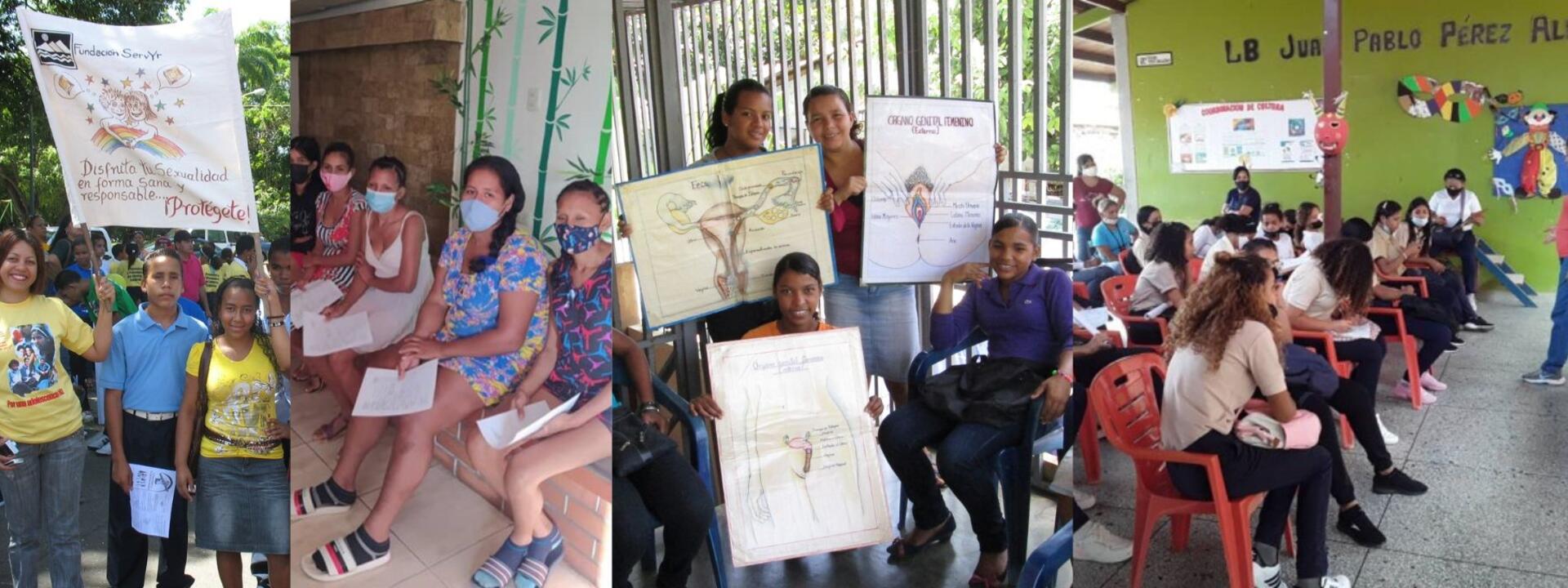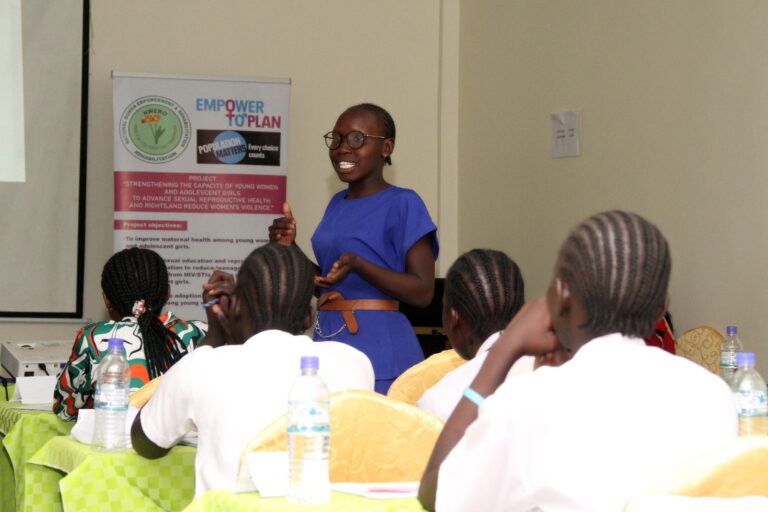
Turimiquire Foundation – PROJECT SHOWCASE
In a world where taboos often discourage discussions about sex and reproductive health, the Turimiquire Foundation, with your support, has worked to empower the youth of Sucre state, Venezuela. Their mission? To uncover the truth, dispel misconceptions, and provide comprehensive sexual education to adolescents in marginalised communities. As we delve into the outcomes of this partnership, it’s apparent that the impact has been nothing short of extraordinary.
Population Matters extended its support to the Turimiquire Foundation, a charity operating in north-eastern Venezuela, with a grant of £6,125 during a time when the country was grappling with a severe humanitarian crisis. Environmental defenders were falling victim to violence, and thousands were fleeing the nation each month. Most of the people continue to live in poverty, experience food insecurity, and lack access to water, gas, and electricity. Acute malnutrition is on the rise, with the most significant impact on children under five and pregnant women from rural areas.
Established in 1997, the Turimiquire Foundation focusses on family planning, education, sustainable livelihoods and agroecological community development. They recognise that enabling families to have control over their fertility is the crucial first step towards meaningful women’s empowerment. The ability to plan one’s family is a fundamental human right, yet in Venezuela, contraceptive methods often remain elusive, especially in rural areas. In recent years, even the capital, Caracas, witnessed shortages of implants, IUDs, the pill, and emergency contraception. And when these contraceptives are available, the soaring inflation renders them inaccessible to many.
In this context, our partnership with Turimiquire aimed to equip young people with the information they needed to make informed decisions about their sexual health. Thanks to your generous support, Turimiquire conducted 44 sex education workshops, involving more than 1,254 young participants.

The workshops began by addressing misconceptions that some young individuals had. Turimiquire recognised the myths, taboos, and misconceptions these young participants had about human sexuality, including beliefs like masturbation leading to mental illness, frequent masturbation causing hair and calluses on the hands, and the notion that menstruation is “bad blood”, among others. The first order of business? Debunking these deeply entrenched myths.

Turimiquire encouraged the participants to voice their concerns and questions anonymously. This set the stage for addressing their doubts throughout the workshops. Facilitators led dynamic discussions that unravelled myths, corrected misconceptions, and championed a natural, unbiased approach to sexual education. The teens explored the nuances of sex, sexual relations, and sexuality through interactive activities. Further sessions ventured into the world of male and female sexual organs, emphasising the importance of hygiene and body care. The workshop also confronted issues like adolescent pregnancy and sexually transmitted infections (STIs). Through group activities, participants identified causes, consequences, and strategies for prevention. The workshops also emphasised the importance of family planning and the proper use of contraceptive methods in preventing unwanted pregnancies and STIs.

The workshops were characterised by lively discussions that left no topic unexplored. This not only raised awareness about protection, but also underscored the necessity for biological, psychological, and social readiness for a healthy and responsible approach to sexuality.
The project achieved several remarkable outcomes. More than 1,000 adolescents gained a comprehensive understanding of human sexuality, dispelling myths, and misunderstandings along the way. Notably, the project was well-received by educational authorities and students, especially since formal sexual education programs were lacking.

Adolescents left with a better understanding of the risks related to unwanted pregnancies and STIs. Contraceptives were seen in a more positive light as tools for preventing risks. Furthermore, participants became acquainted with their sexual and reproductive rights, as outlined in Article 50 of the Organic Law for the Protection of Children, Girls, and Adolescents. Encouragingly, some young participants enthusiastically joined Turimiquire’s family planning programme, actively seeking contraceptives, and attending consultations to make informed choices about their sexual health.
In conclusion, this effort has dispelled ignorance and planted the seeds of empowerment and knowledge. It shows how education and awareness can create a better future for these young people, even in challenging circumstances.

